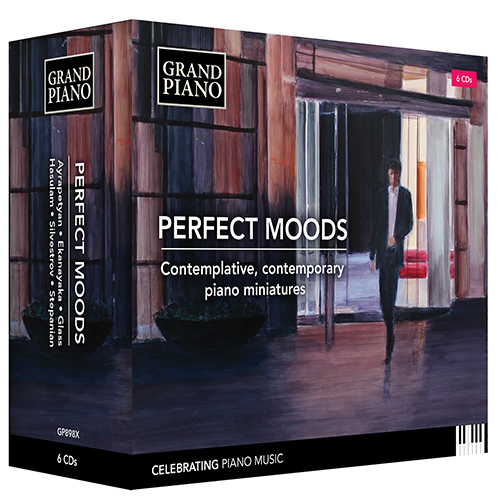
About this Release
PERFECT MOODS – CONTEMPLATIVE, CONTEMPORARY PIANO MINIATURES
Perfect Moods is a collection of acclaimed albums that together present a multi-cultural journey of inspiring and contemplative modern piano repertoire for the 21st century. Armenian pianist Mikael Ayrapetyan explores his countryman Haro Stepanian’s exquisite Preludes; the spiritual and sensual Melodies of the Upper Worlds by the prominent Kabbalist Baal HaSulam; as well as Ayrapetyan’s own A Whole in 12. Composer-pianist Tanya Ekanayaka performs her Twelve Piano Prisms – a diverse mix of melodies from her native Sri Lanka combined with music from other countries and genres. The album devoted to Valentin Silvestrov presents an essential overview of this Ukrainian composer’s ‘post-modern’ piano music, with its lingering allusions to the past. For Philip Glass the focus is on love, not least in music for the BAFTA-winning score for The Hours, but also in the breathtaking Modern Love Waltz. All of the composers included in this set showcase contemporary piano music at its most accessible, tonal and expressive.
Tracklist
|
Baal HaSulam
|
|
1
Krivu li (Draw Close to Me) (arr. M. Ayrapetyan for piano) (1926) (00:05:15)
|
|
2
Ki Chilattzta Nafshi (You Saved My Soul) (arr. M. Ayrapetyan for piano) (1926) (00:03:34)
|
|
3
Hamol Al Masecha (Have Pity on Your Deeds) (arr. M. Ayrapetyan for piano) (1926) (00:04:21)
|
|
4
Nigun (Melody) (arr. M. Ayrapetyan for piano) (1926) (00:04:07)
|
|
Bnei Heichala (The Sons of King's Palace) (arr. M. Ayrapetyan for piano) (1926) (00:08:00 )
|
|
5
Part I (00:04:47)
|
|
6
Part II (00:03:38)
|
|
7
Chasal Seder Pesach (Passover Meal) (arr. M. Ayrapetyan for piano) (1926) (00:02:00)
|
|
8
Kel Mistater (The Creator Hides in Secrecy) (arr. M. Ayrapetyan for piano) (1926) (00:03:45)
|
|
9
March (arr. M. Ayrapetyan for piano) (1926) (00:03:17)
|
|
10
Ia'ale Tachanuneinu (Accept Our Prayers) (arr. M. Ayrapetyan for piano) (1926) (00:04:25)
|
|
11
Hiney ke Homer (Like Matter in His Hands) (arr. M. Ayrapetyan for piano) (1926) (00:03:49)
|
|
12
Misod Chachamim (The Assembly of Sages) (arr. M. Ayrapetyan for piano) (1926) (00:04:39)
|
|
13
Mizmor Le David (David's Song) (arr. M. Ayrapetyan for piano) (1926) (00:03:32)
|
|
14
Leagid Baboker (To Proclaim in the Morning about Your Mercy) (arr. M. Ayrapetyan for piano) (1926) (00:02:55)
|
|
15
Kadish (Сonsecration) (arr. M. Ayrapetyan for piano) (1926) (00:03:47)
|
|
16
Tzadik (Saint) (arr. M. Ayrapetyan for piano) (1926) (00:03:17)
|
|
17
Iadid Nefesh (Beloved of the Soul) (arr. M. Ayrapetyan for piano) (1926) (00:07:12)
|
|
Stepanian, Haro
|
|
8 Preludes, Op. 47 (1947) (00:55:35 )
|
|
1
No. 1 in G Minor (00:02:52)
|
|
2
No. 2 in A Major (00:01:37)
|
|
3
No. 3 in F Minor (00:02:33)
|
|
4
No. 4 in F-Sharp Minor (00:01:41)
|
|
5
No. 5 in G Major (00:01:59)
|
|
6
No. 6 in F Minor (00:02:29)
|
|
7
No. 7 in C Minor (00:03:06)
|
|
8
No. 8 in F-Sharp Minor (00:01:43)
|
|
8 Preludes, Op. 48 (1948) (00:17:03 )
|
|
9
No. 1 in E Minor (00:01:41)
|
|
10
No. 2 in C Minor (00:02:30)
|
|
11
No. 3 in A Major (00:02:15)
|
|
12
No. 4 in A Minor (00:01:42)
|
|
13
No. 5 in F Minor (00:01:59)
|
|
14
No. 6 in F-Sharp Minor (00:02:37)
|
|
15
No. 7 in G Minor (00:02:20)
|
|
16
No. 8 in F Major (00:01:59)
|
|
8 Preludes, Op. 63 (1956) (00:14:32 )
|
|
17
No. 1 in E Minor (00:02:01)
|
|
18
No. 2 in G Minor (00:01:29)
|
|
19
No. 3 in F-Sharp Major (00:01:52)
|
|
20
No. 4 in A Minor (00:01:23)
|
|
21
No. 5 in B Minor (00:02:31)
|
|
22
No. 6 in B Minor (00:01:18)
|
|
23
No. 7 in B Major (00:02:01)
|
|
24
No. 8 in G Minor (00:01:57)
|
|
25
Prelude in A Major (1964) (1964) (00:02:41)
|
|
26
Prelude in F Minor (1965) (1965) (00:02:30)
|
|
Silvestrov, Valentin
|
|
Naive Music (1955) (00:26:36
)
|
|
1
No. 1. Waltz (00:03:42)
|
|
2
No. 2. Nocturne (00:02:36)
|
|
3
No. 3. Fairy Tale (00:06:53)
|
|
4
No. 4. Idyll (00:04:43)
|
|
5
No. 5. Nocturne (00:02:14)
|
|
6
No. 6. Prelude (00:02:06)
|
|
7
No. 7. Waltz (00:04:22)
|
|
8
The Messenger - 1996 (Der Bote - 1996) (version for piano) (1996) (00:07:30)
|
|
2 Waltzes, Op. 153 (2009) (00:05:00 )
|
|
9
No. 1. Allegro assai (00:01:57)
|
|
10
No. 2. Allegretto (00:02:28)
|
|
4 Pieces, Op. 2 (2006) (00:08:00 )
|
|
11
No. 1. Lullaby: Moderato (00:02:46)
|
|
12
No. 2. Pastorale: Vivace (00:02:02)
|
|
13
No. 3. Bagatelle: Moderato (00:02:12)
|
|
14
No. 4. Postludium: Moderato (00:02:01)
|
|
2 Bagatelles, Op. 173 (2011) (00:04:00 )
|
|
15
No. 1. Moderato (00:01:27)
|
|
16
No. 2. Andantino (00:02:08)
|
|
Kitsch-Musik () (00:16:22 )
|
|
17
I. Allegro vivace (00:03:24)
|
|
18
II. Moderato (00:03:57)
|
|
19
III. Allegretto (00:03:02)
|
|
20
IV. Moderato (00:02:43)
|
|
21
V. Allegretto (00:01:46)
|
|
Glass, Philip
|
|
The Hours (arr. N. Muhly and M. Riesman for piano) (2002) (00:47:22 )
|
|
1
The Poet Acts (00:03:20)
|
|
2
Morning Passages (00:05:06)
|
|
3
Something She Has to Do (00:02:55)
|
|
4
For Your Own Benefit (00:01:55)
|
|
5
Vanessa and the Changelings (00:01:29)
|
|
6
I'm Going to Make a Cake (00:03:02)
|
|
7
An Unwelcome Friend (00:04:17)
|
|
8
Dead Things (00:02:49)
|
|
9
The Kiss (00:03:37)
|
|
10
Why Does Someone Have to Die? (00:03:05)
|
|
11
Tearing Herself Away (00:03:20)
|
|
12
Escape! (00:03:08)
|
|
13
Choosing Life (00:03:44)
|
|
14
The Hours (00:05:35)
|
|
15
Modern Love Waltz (1977) (00:03:36)
|
|
16
Notes on a Scandal: The Harts - I Knew Her (version for piano) (2006) (00:04:15)
|
|
17
Music in Fifths (1969) (00:05:59)
|
|
Ekanayaka, Tanya
|
|
1
Piano Prism No. 1. E Flat - July 2016/17 (2017) (00:04:36)
|
|
2
Piano Prism No. 2. B Flat - Armenia to a Pearl (2017) (00:02:40)
|
|
3
Piano Prism No. 3. C - Emerald Lapwing Karpet (2017) (00:05:36)
|
|
4
Piano Prism No. 4. D Flat - Intuition, Auld Lang Syne & An Asian Sacred (2017) (00:04:14)
|
|
5
Piano Prism No. 5. G - With Paaru Kavi (2016) (00:05:33)
|
|
6
Piano Prism No. 6. F - Renewal & Goyam Kapuma (2016) (00:08:32)
|
|
7
Piano Prism No. 7. E - Arrow-and (2017) (00:02:10)
|
|
8
Piano Prism No. 8. A - Zuni Sea (2017) (00:03:23)
|
|
9
Piano Prism No. 9. A Flat Scintilla: Komitas Unto Childhood (2017) (00:03:05)
|
|
10
Piano Prism No. 10. B - Of Vannam & Zhuang Tai Qiu Si (2017) (00:01:56)
|
|
11
Piano Prism No. 11. F Sharp - Kitty & Bambaru (2016) (00:09:45)
|
|
12
Piano Prisms No. 12. D - Hana Hare () (00:04:03)
|
|
Ayrapetyan, Mikael
|
|
1
Autumnal (2018) (00:04:31)
|
|
2
The lady plays (2018) (00:05:03)
|
|
3
Longing (2018) (00:04:21)
|
|
4
Dilemma (2018) (00:04:30)
|
|
5
Arousal (2018) (00:04:24)
|
|
6
Prayer (2018) (00:05:06)
|
|
7
Clouds (2018) (00:04:52)
|
|
8
The First Snow (2018) (00:03:18)
|
|
9
Christmas Eve (2018) (00:04:37)
|
|
10
Totality (2018) (00:05:15)
|
|
11
Rain and rendezvous (2018) (00:04:15)
|
|
12
Finality (2018) (00:04:15)
|
The Composer(s)
 Mikael Ayrapetyan is a pianist, composer, producer and teacher, as well as a researcher and public figure. He has done much to popularise Armenian classical music all over the world with his Secrets of Armenia musical project, which began during his studies at the Moscow Conservatory. Born in 1984 in Yerevan, Armenia, he studied at the Moscow Tchaikovsky State Conservatory, and continues to uphold the performing traditions of the Russian piano school, of which Konstantin Igumnov, Samuel Feinberg and Lev Oborin are luminaries. His repertoire ranges from the Baroque to the contemporary and includes rarely performed works by Armenian composers. This period was the start of his extensive concert activity in which he performs works by Tigranian, Chukhadjian, Komitas, Melikian, Spendiarian, Barkhudarian, Stepanian, Khachaturian, Babajanian, Arutyunian, Abrahamian, Bagdasarian, Avetisian, Mirzoyan, Amirkhanian and many other Armenian composers, which eventually led him to produce his own concerts. He was awarded the State Prize of the Republic of Armenia for his outstanding contribution to the development and popularisation of Armenian classical music.
Mikael Ayrapetyan is a pianist, composer, producer and teacher, as well as a researcher and public figure. He has done much to popularise Armenian classical music all over the world with his Secrets of Armenia musical project, which began during his studies at the Moscow Conservatory. Born in 1984 in Yerevan, Armenia, he studied at the Moscow Tchaikovsky State Conservatory, and continues to uphold the performing traditions of the Russian piano school, of which Konstantin Igumnov, Samuel Feinberg and Lev Oborin are luminaries. His repertoire ranges from the Baroque to the contemporary and includes rarely performed works by Armenian composers. This period was the start of his extensive concert activity in which he performs works by Tigranian, Chukhadjian, Komitas, Melikian, Spendiarian, Barkhudarian, Stepanian, Khachaturian, Babajanian, Arutyunian, Abrahamian, Bagdasarian, Avetisian, Mirzoyan, Amirkhanian and many other Armenian composers, which eventually led him to produce his own concerts. He was awarded the State Prize of the Republic of Armenia for his outstanding contribution to the development and popularisation of Armenian classical music. 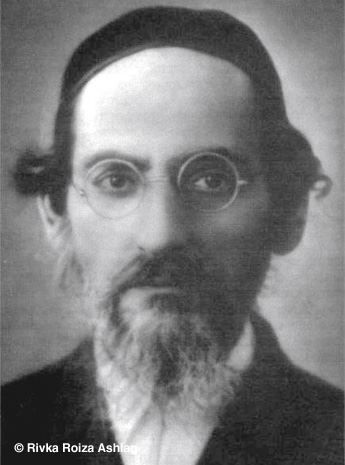 The Rabbi Yehuda Leib HaLevi Ashlag (1885–1954) became known as Baal HaSulam (‘Owner of the Ladder’) for his Sulam (‘ladder’) commentary on the Kabbalist Book of Zohar. He dedicated his life to the interpretation and dissemination of ideas found in the Kabbalah, the Jewish teachings intended to explain the relationship between God the infinite, and the mortal and finite universe: in other words, the roots and purpose of existence.
The Rabbi Yehuda Leib HaLevi Ashlag (1885–1954) became known as Baal HaSulam (‘Owner of the Ladder’) for his Sulam (‘ladder’) commentary on the Kabbalist Book of Zohar. He dedicated his life to the interpretation and dissemination of ideas found in the Kabbalah, the Jewish teachings intended to explain the relationship between God the infinite, and the mortal and finite universe: in other words, the roots and purpose of existence.  Dr Tanya Ekanayaka is an internationally acclaimed and award-winning Sri Lankan-British concert composer-pianist. Although trained as a pianist, her compositional skills are the result of a purely intuitive and natural development. Influenced by her multifaceted background, multilingualism, ambidexterity and partial colour synaesthesia her works which she describes as ‘deeply autobiographical’ and which evolve when she is at the piano (and at times in her dreams), have not been scored in any form but remain precisely frozen in her memory once evolved. Consistent with her interdisciplinary background, she holds a doctorate for interdisciplinary research involving Linguistics and Musicology from The University of Edinburgh, where she has also been engaged part time in academic teaching since 2007, as well as advanced academic and professional qualifications in Music Performance, Linguistics and Literature.
Dr Tanya Ekanayaka is an internationally acclaimed and award-winning Sri Lankan-British concert composer-pianist. Although trained as a pianist, her compositional skills are the result of a purely intuitive and natural development. Influenced by her multifaceted background, multilingualism, ambidexterity and partial colour synaesthesia her works which she describes as ‘deeply autobiographical’ and which evolve when she is at the piano (and at times in her dreams), have not been scored in any form but remain precisely frozen in her memory once evolved. Consistent with her interdisciplinary background, she holds a doctorate for interdisciplinary research involving Linguistics and Musicology from The University of Edinburgh, where she has also been engaged part time in academic teaching since 2007, as well as advanced academic and professional qualifications in Music Performance, Linguistics and Literature. 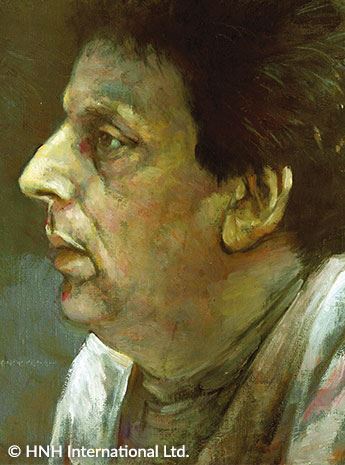 Piano is Philip Glass’ primary instrument (he also studied violin and flute); he composes at the keyboard. With its seemingly contradictory elements of lyricism and percussiveness, it is in some ways the ideal medium for Glass’ musical language. With its deep roots in tradition (spanning the Classical, Romantic and Modern eras), the instrument embodies the composer’s desire to merge new ideas with classic forms. It is perhaps via piano (and, by extension, keyboard) that performers and listeners can make the most direct and personal contact with Glass’ musical genius.
Piano is Philip Glass’ primary instrument (he also studied violin and flute); he composes at the keyboard. With its seemingly contradictory elements of lyricism and percussiveness, it is in some ways the ideal medium for Glass’ musical language. With its deep roots in tradition (spanning the Classical, Romantic and Modern eras), the instrument embodies the composer’s desire to merge new ideas with classic forms. It is perhaps via piano (and, by extension, keyboard) that performers and listeners can make the most direct and personal contact with Glass’ musical genius. 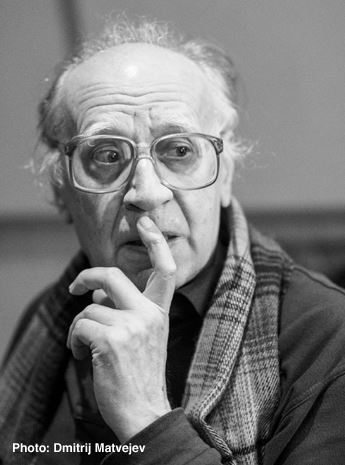 Silvestrov is considered one of the leading representatives of the “Kiev avant-garde”, which came to public attention around 1960 and was violently criticized by the proponents of the conservative Soviet musical aesthetic. In the 1960s and 1970s his music was hardly played in his native city; premieres, if given at all, were heard only in Russia, primarily in Leningrad (now St. Petersburg), or in the West. His Spectrums for chamber orchestra, for example, was premiered to spectacular acclaim by the Leningrad Philharmonic under the baton of Igor Blashkov in 1965. In 1968 the same conductor gave the premiere of the Second Symphony.
Silvestrov is considered one of the leading representatives of the “Kiev avant-garde”, which came to public attention around 1960 and was violently criticized by the proponents of the conservative Soviet musical aesthetic. In the 1960s and 1970s his music was hardly played in his native city; premieres, if given at all, were heard only in Russia, primarily in Leningrad (now St. Petersburg), or in the West. His Spectrums for chamber orchestra, for example, was premiered to spectacular acclaim by the Leningrad Philharmonic under the baton of Igor Blashkov in 1965. In 1968 the same conductor gave the premiere of the Second Symphony.  Stepanian trained in Moscow, at the Gnessin Music College, from 1923–26, where his fellow pupils included Aram Khachaturian (1903–1978). He subsequently joined the composition class of Vladimir Shcherbachov at the State Conservatory in Leningrad (St Petersburg). Stepanian began teaching at the State Conservatory in Armenia’s capital, Yerevan; and by the late 1930s he was the chairman of the organising committee of the Armenian Union of Composers. He became increasingly interested in the folk music of his own country, and undertook a number of expeditions to collect musical samples from around Armenia. ‘I fell in love with Armenian folk music,’ he explained, ‘as one loves one’s mother, one’s friend or one’s beloved. In it I heard the voice of the heart and soul of my native country, the echoes of historical storms, sorrows, joys and hopes, anger and dreams of my people. Throughout my life I looked upon it as if it were a living being.’ His work in this area was greatly admired, and Khachaturian (with whom he remained close friends) wrote to him in 1953, ‘I think you are the greatest Soviet Armenian composer, whose merits before the native art are really great.’
Stepanian trained in Moscow, at the Gnessin Music College, from 1923–26, where his fellow pupils included Aram Khachaturian (1903–1978). He subsequently joined the composition class of Vladimir Shcherbachov at the State Conservatory in Leningrad (St Petersburg). Stepanian began teaching at the State Conservatory in Armenia’s capital, Yerevan; and by the late 1930s he was the chairman of the organising committee of the Armenian Union of Composers. He became increasingly interested in the folk music of his own country, and undertook a number of expeditions to collect musical samples from around Armenia. ‘I fell in love with Armenian folk music,’ he explained, ‘as one loves one’s mother, one’s friend or one’s beloved. In it I heard the voice of the heart and soul of my native country, the echoes of historical storms, sorrows, joys and hopes, anger and dreams of my people. Throughout my life I looked upon it as if it were a living being.’ His work in this area was greatly admired, and Khachaturian (with whom he remained close friends) wrote to him in 1953, ‘I think you are the greatest Soviet Armenian composer, whose merits before the native art are really great.’ 
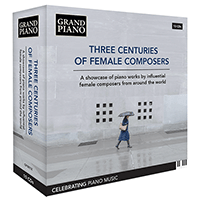
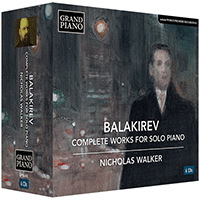
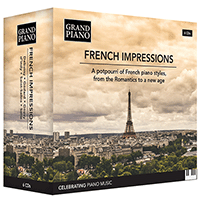
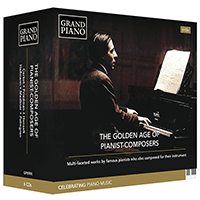
 Grand Piano has gained a reputation for producing high quality recordings of rare keyboard gems. Dedicated to the exploration of undiscovered piano repertoire, the label specialises in complete cycles of piano works by many lesser-known composers, whose output might otherwise have remained unknown and unrecorded.
Grand Piano has gained a reputation for producing high quality recordings of rare keyboard gems. Dedicated to the exploration of undiscovered piano repertoire, the label specialises in complete cycles of piano works by many lesser-known composers, whose output might otherwise have remained unknown and unrecorded.






